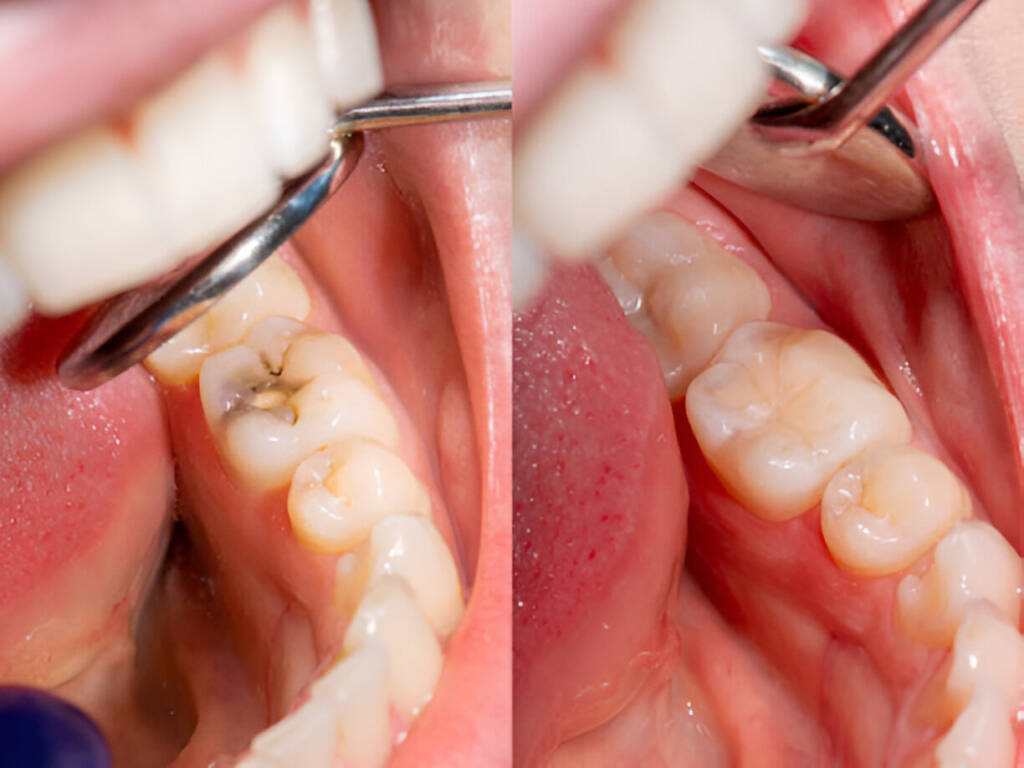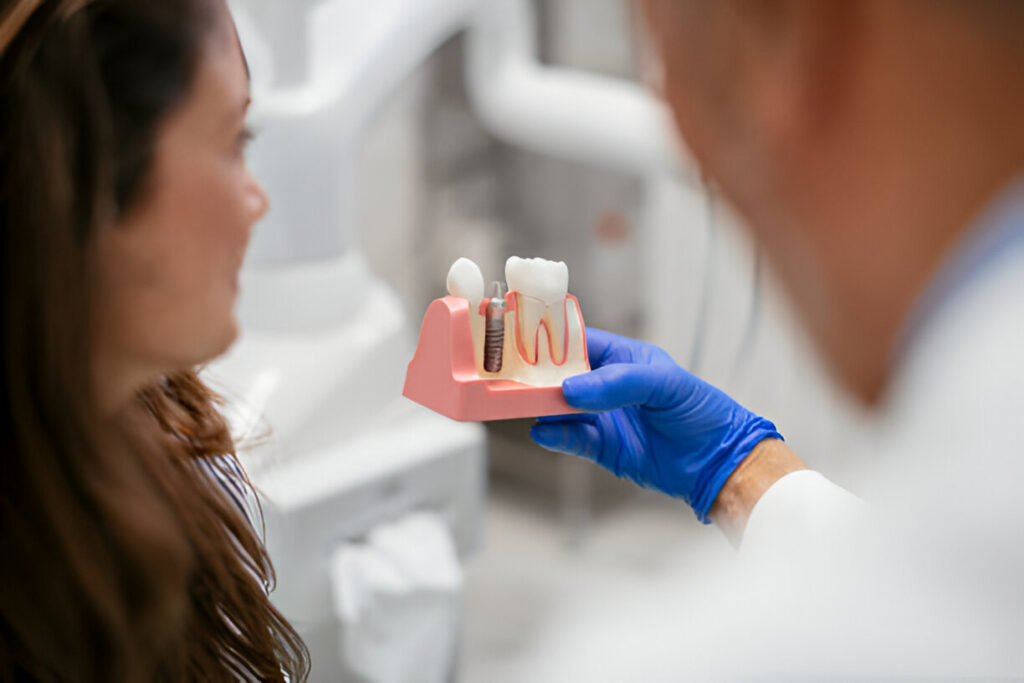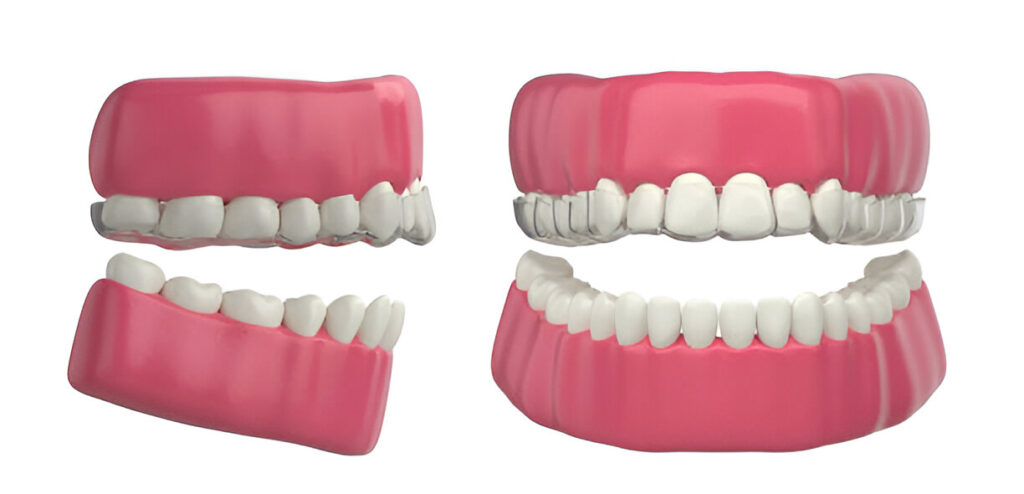Composite fillings are a popular choice for treating cavities. They blend well with your natural teeth and harden quickly. After getting a composite filling, many patients wonder, “How long after a composite filling can I brush my teeth?” This article will guide you through the steps to ensure your filling lasts and your mouth stays healthy.
Immediate Aftercare: The First Few Hours
Wait for the Numbing Agent to Wear Off
Your dentist will use a numbing agent to keep you comfortable during the procedure. It’s crucial to wait until this numbing agent wears off completely before you start eating or brushing. Chewing while numb can lead to accidental bites on your lips, cheeks, or tongue, causing soft tissue damage.
Avoid Brushing Immediately
In the initial hours after the composite filling, it’s advisable to refrain from brushing your teeth. This allows the filling material to be set completely. Instead, focus on gentle rinsing with a mild, alcohol-free mouthwash to eliminate any residue.
Gentle Brushing Protocol: The First 24 Hours
Start with Gentle Rinsing
Once the numbing effect has worn off, you can start by gently rinsing your mouth with a warm salt water solution. This helps reduce inflammation and keeps the area clean without disturbing the filling.
Use a Soft-Bristled Toothbrush
After a few hours, you can begin brushing your teeth. Use a soft-bristled toothbrush to avoid putting undue pressure on the filled tooth. Gentle, circular motions are best to ensure all tooth surfaces are covered without causing irritation.
Opt for Sensitive Toothpaste
Choose a toothpaste designed for sensitive teeth. These formulations are gentler and help prevent discomfort while effectively cleaning your teeth. Look for keywords like “gentle” or “for sensitive teeth” on the packaging.
Daily Oral Hygiene: Maintaining Your Filling
Brush Twice a Day
Maintain a regular brushing routine of at least twice a day. Consistency is key to preventing plaque buildup and maintaining overall oral health. Ensure you reach all areas of your mouth, paying special attention to the filled tooth while being gentle.
Floss Carefully
Incorporate flossing into your daily routine to remove debris from between your teeth. For those with composite fillings, interdental brushes can be particularly effective in keeping hard-to-reach areas clean. Be gentle around the filled tooth to avoid damaging it.
Avoid Alcohol-Based Mouthwashes
While it’s essential to keep your mouth clean, avoid mouthwashes that contain alcohol. These can affect the structural integrity of your composite fillings over time. Instead, use an alcohol-free mouthwash or a warm salt water rinse.
Pain Management: Dealing with Post-Procedure Discomfort
Over-the-Counter Pain Relief
It’s normal to feel some mild discomfort or sensitivity after a composite filling. Over-the-counter painkillers like ibuprofen or acetaminophen can help alleviate this. If the pain lasts over 24 hours, contact your dentist. They need to check for infection or an issue with the filling.
Warm Salt Water Rinse
If you experience sensitivity or tenderness, a warm salt water rinse can be soothing. Mix a teaspoon of salt with a glass of warm water and rinse your mouth gently. This can help reduce inflammation and discomfort.
Long-Term Care: Ensuring the Longevity of Your Filling
Regular Dental Check-Ups
Regular dentist visits are essential to maintain your dental health and the integrity of your fillings. Schedule check-ups every six months for professional cleanings and examinations. Your dentist can catch any potential issues early and provide appropriate treatments.
Break Harmful Habits
Certain habits can damage your composite fillings. Avoid chewing on ice or hard objects, and seek treatment if you grind your teeth (bruxism). Wearing a mouthguard at night can protect your teeth and fillings from damage by grinding.
Conclusion
Yes, you can brush your teeth after a composite filling, but it’s essential to do so gently and with care. Follow the aftercare guidelines, keep your mouth clean, and attend regular dental check-ups. Doing these things will help your composite fillings last. By adopting these practices, you can keep your smile healthy and beautiful for years to come.
Schedule your Appointment Today!
Schedule Your Appointment at Cove Dental and Implant Centre
Ensure the longevity of your composite fillings with expert care from Cove Dental and Implant Centre. Our experienced team provides comprehensive dental services to keep your smile healthy and bright. Whether you need a check-up or have concerns about your fillings, we’re here to help. Contact us today to schedule your appointment and receive personalised dental care tailored to your needs.
Frequently Asked Questions
Can I eat immediately after a composite filling?
It’s best to wait until the numbing agent wears off to avoid biting your lips, cheeks, or tongue. Start with soft foods and avoid very hot or cold items.
Is sensitivity normal after a composite filling
Yes, mild sensitivity is normal and should subside within a few days. If it persists for more than a week, contact your dentist for an evaluation.
Can I use mouthwash after getting a composite filling?
Yes, but avoid alcohol-based mouthwashes. Instead, use an alcohol-free mouthwash or a warm salt water rinse to keep your mouth clean and reduce sensitivity.
Will my composite filling stain over time?
Composite fillings can stain like natural teeth. Avoid consuming excessive coffee, tea, red wine, and berries to maintain their appearance.
How long do composite fillings last?
With proper care, composite fillings can last 5-7 years or longer. Regular dental check-ups and good oral hygiene practices are crucial for their longevity.
Can composite fillings fall out?
While composite fillings are durable, improper care can lead to damage or dislodgement. Avoid chewing hard objects and maintain good oral hygiene to keep them intact.





